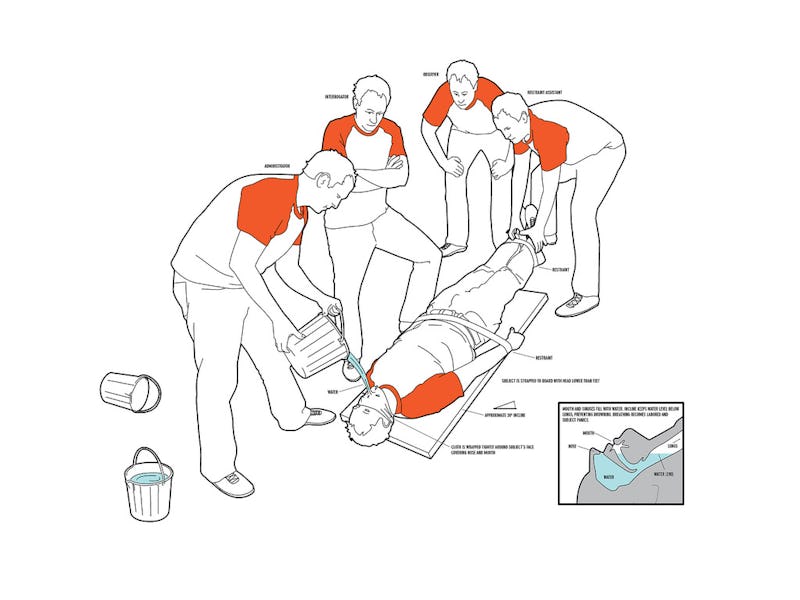The American Psychological Association Comes Out Belatedly Against 'Enhanced Interrogation'
Torture is just torture when you get rid of the pseudo-science.

The American Psychological Association has announced a ban preventing its members from participating in government interrogations. APA members were implicated in the “Hoffman Report” last week that detailed the excesses of the CIA torture program during the Bush presidency. Though psychologists are not physicians — and therefore don’t have to take an oath to “do no harm” — APA conventioneers in Toronto decided that specific types of harm were a bridge too far.
According to the APA, association members who participated in “enhanced interrogations” were violating the body’s bylaws, which state that psychologists should not have any involvement with torture. Actually, the bylaws are even more specific than that. Here’s the list of things APA shrinks can’t do in regard to torture: “assist, tolerate, direct, support, advise, facilitate, plan, design, or offer training.” That pretty much covers it, so the new APA policy is more of a strong clarification than a meaningful shift in priorities.
In a sense, the announcement was a peace offering to APA members profoundly offended by the behavior of those who oversaw the torture of prisoners. Because the APA is a massively powerful and important body in the field of psychology, the announcement may limit the number of psychologists willing to take the perceived career risk associated with information extraction. This won’t necessarily stop security agencies from engaging in morally questionable practices, but hopefully it will make it harder for them to hide behind pseudo-science and faux professionalism while doing so.
If anything, the APA announcement may be the death of “enhanced interrogation.” Without the trappings of psychology, torture can’t be obscure. Torture is torture.